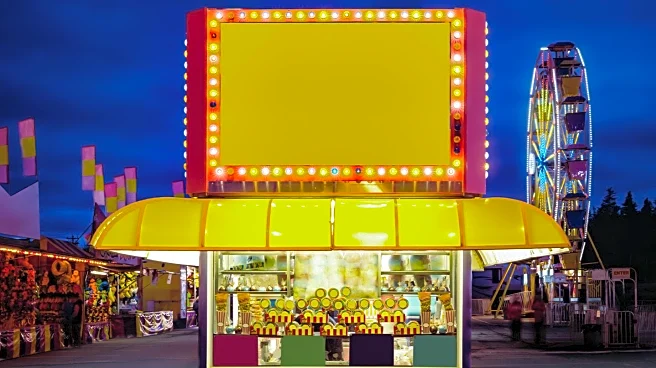What's Happening?
A recent segment on CBS News showcased a unique filmmaking endeavor where a movie was produced in just 48 hours. The film, centered around a family camping trip that takes a dark turn due to a young girl's obsession with the perfect treat, was created as part of a rapid production challenge. This initiative highlights the creativity and resourcefulness of filmmakers who are able to produce compelling narratives under tight time constraints. The project not only demonstrates the potential for quick turnaround in film production but also serves as an inspiration for aspiring filmmakers looking to explore innovative storytelling techniques.
Why It's Important?
The ability to produce a film in such a short timeframe underscores the evolving landscape of the filmmaking industry, where speed and efficiency are increasingly valued. This approach can significantly reduce production costs and time, making filmmaking more accessible to independent creators and smaller studios. It also encourages experimentation and innovation, potentially leading to new storytelling formats and techniques. For the local filmmaking community, such projects can foster collaboration and skill development, providing a platform for emerging talent to showcase their work and gain recognition.
What's Next?
Following the success of this rapid production challenge, there may be increased interest in similar initiatives that encourage filmmakers to push the boundaries of traditional production timelines. This could lead to more festivals or competitions focused on quick turnaround projects, offering filmmakers opportunities to gain exposure and network with industry professionals. Additionally, the techniques and strategies developed during such challenges could be adopted by larger studios looking to streamline their production processes.
Beyond the Headlines
The cultural implications of rapid film production are significant, as they reflect a shift towards valuing creativity and adaptability in the arts. This trend may influence other creative industries, encouraging a move away from traditional, lengthy production cycles towards more dynamic and flexible approaches. It also raises questions about the balance between quality and speed, challenging creators to maintain high standards while working under pressure.









